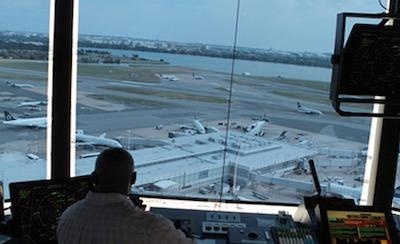Thu, Apr 25, 2024
NTSB Praises New FAA Policy on Controller Rest and Duty Time
The NTSB has long highlighted the risks associated with fatigue among air traffic controllers, advocating for changes to ensure they receive adequate rest. Recently, NTSB Chair Jennifer Homendy praised the new FAA regulation requiring air traffic controllers to have at least 10 hours off between shifts and 12 hours off before a midnight shift. This policy adjustment aims to enhance safety by ensuring controllers are well-rested and alert.

This initiative comes after tragic incidents that underscored the severe implications of controller fatigue. A notable example is the Comair flight 5191 crash on August 27, 2006, in Lexington, Kentucky, where 49 lives were lost when a plane took off from the wrong runway. The controller on duty had returned to work just nine hours after completing his previous shift, having managed only a two-hour nap in the interim. The lack of rest was pointed out in the investigation as a significant factor contributing to the accident.
Another incident that brought this issue to the forefront occurred on March 23, 2011, at Ronald Reagan Washington National Airport. An air traffic controller fell asleep during a midnight shift, leading to a situation where two commercial airplanes landed without assistance from the control tower. The NTSB investigation attributed the controller's lapse to acute fatigue, exacerbated by consecutive midnight shifts and scheduling practices that did not allow for sufficient rest.

Homendy's remarks underline the ongoing concern and need for systemic changes in how air traffic controllers' shifts are scheduled. "We have been calling for action on controller fatigue for more than 18 years," Homendy stated, expressing her approval of the FAA's decision while also acknowledging that more efforts are needed to fully address the issue.
This recent mandate by the FAA is seen as a significant step towards rectifying long-standing safety concerns, aiming to prevent the type of errors that can lead to catastrophic consequences. The focus on adequate rest aligns with broader safety management strategies essential for the high-stakes nature of air traffic control.
More News
Hold Procedure A predetermined maneuver which keeps aircraft within a specified airspace while awaiting further clearance from air traffic control. Also used during ground operatio>[...]
Altitude Readout An aircraft’s altitude, transmitted via the Mode C transponder feature, that is visually displayed in 100-foot increments on a radar scope having readout cap>[...]
Aero Linx: European Hang Gliding and Paragliding Union (EHPU) The general aim of the EHPU is to promote and protect hang gliding and paragliding in Europe. In order to achieve this>[...]
Also: Skydio Chief, Uncle Sam Sues, Dash 7 magniX, OR UAS Accelerator US Secretary of the Air Force Frank Kendall was given a turn around the patch in the 'X-62A Variable In-flight>[...]
"The need for innovation at speed and scale is greater than ever. The X-62A VISTA is a crucial platform in our efforts to develop, test and integrate AI, as well as to establish AI>[...]
 ANN's Daily Aero-Term (05.09.24): Hold Procedure
ANN's Daily Aero-Term (05.09.24): Hold Procedure ANN's Daily Aero-Term (05.06.24): Altitude Readout
ANN's Daily Aero-Term (05.06.24): Altitude Readout ANN's Daily Aero-Linx (05.06.24)
ANN's Daily Aero-Linx (05.06.24) Airborne-NextGen 05.07.24: AI-Piloted F-16, AgEagle, 1st 2 WorldView Sats
Airborne-NextGen 05.07.24: AI-Piloted F-16, AgEagle, 1st 2 WorldView Sats Aero-News: Quote of the Day (05.07.24)
Aero-News: Quote of the Day (05.07.24)




